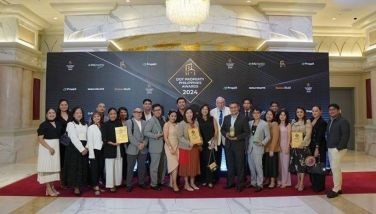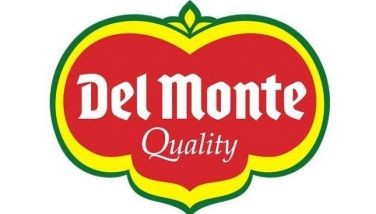Electoral financing (2)

The most expensive presidential contest in Philippine history is obviously the 1969 contest between Ferdinand Marcos, seeking reelection, and the Liberal Party’s Sergio Osmena Jr.
When the elections were done and Marcos had successfully gotten himself reelected, the economy went into a tailspin. The peso collapsed against the dollar. Inflation spiked to its highest postwar levels.
When the oil price shock struck us in the early seventies, the vulnerable national economy simply buckled. The political climate was poisoned and the political condition highly polarized. The stage was set for the imposition of martial rule and the onset of a long period of dictatorship.
Those who contributed heavily to the Marcos campaign were anxious to recover their electoral investments. The stage was set for crony capitalism, enhanced by the sheer unaccountability of an authoritarian regime.
On the other side of the epic 1969 battle, several major oligarchic families were literally wiped off the board. Not a few large family-owned enterprises were sold off — and often purchased at a discount by the emerging crony capitalists, a fact that added to the bitterness that clouded our politics.
When a “New Society” was proclaimed in September 1972, a major objective of the “democratic revolution from the center” was the scuttling of the “oligarchy.” Specifically targeted were the landed families that helped finance the Osmena campaign. The Roces family lost their publishing empire. The Lopez family lost ABS-CBN and Meralco (both recovered when Cory rose to power). The sugar and coconut plantations were subordinated under cronies in charge of “integrating and modernizing” them.
Before the 1969 contest, electoral finance was generally raised from the landed aristocracy. The plantation economy, largely untaxed, constituted the center-of-gravity of the national economy. The modern, urban sections of the economy were underdeveloped. National revenues were raised, for the most part, by taxing trade.
The Liberal and Nacionalista parties were really nothing more than proxies for the “sugar bloc” and the “tobacco bloc.” They nevertheless enjoyed some degree of autonomy from their landlord sponsors, and functioned as talent-search mechanisms to select rising political stars and propel them to electoral victory. This explains why the political parties of that time actively wooed bar topnotchers like Diokno, Salonga, Tolentino and Tanada, grooming them to be gladiators in the electoral arena.
By 1969, the picture had changed. The modern urban economy was expanding quickly and the plantation economy was dying just as fast. The epic contest between Marcos and Osmena condensed the social and economic blocs of the period.
At the risk of some simplification, it might be said that the Marcos campaign enjoyed financial support from the rising urban corporate elites of bankers, manufacturers and traders. The Osmena campaign, on the other hand, was supported largely by the old landed families, even as some of these family fortunes had made inroads into the modern sectors of the economy.
Although agrarian reform was a program that met expectations for social justice, it was also a potent instrument to undermine the power of the old landed elite. Those of the old landed aristocracy saw Marcos as an outsider, the representative of the philistine new rich rising from the mercantile sector. Marcos saw them as indolent aristocrats holding hostage the nation’s progress.
The period of dictatorship saw the influence and economic importance of the plantation lords decline. New substitutes and more efficient farms elsewhere undermined the market for our plantation crops. Massive rural-to-urban migration ensued. By the time the dictatorship was toppled, much of the population and much of the economy were urban.
The structural change of the larger society reflected in the patterns of electoral financing. In the post-Marcos elections, funding came mainly from the mercantile sector and was channeled into the political arena through the presidential contenders. It was the president, after all, who could shape policies that will make electoral investments worthwhile. The rural political bosses could not do that.
Provincial political bosses were starved of electoral financing. There was little economic surplus in their localities — save for those raised through illegal gambling, drug syndicates, and occasional illegal logging operators where forests were still available. At the same time, the rural poor were constantly at their doors, waiting for patronage to happen. The situation was compounded by insurgent extortionists who shake down candidates under pain of bodily harm.
Some provincial bosses, notably those who control sections of the grey economy directly, were quite capable of spending on their dependent constituents and demanding blocked votes in exchange. But they have become few and far in between. Candidates at the national level needed the market votes from the teeming urban centers. No “political machine” could command those votes.
The utility of provincial bosses for national candidates declined as their capacity for vote delivery proved tenuous election after election. Funding local candidates became inefficient methods for gathering votes.
This dynamic is magnified by the declining importance of political protection for mainstream enterprises. Liberalization of economic policies removed political protection as a factor for enterprise success or failure. More transparent governance meant corruption cannot be relied upon as a sustainable source of wealth.
In a word, there are now less and less incentives for “electoral investment” — or whatever other euphemism there might be to explain the funding flow that once upon a time made elections comparatively more costly in this country. In the interim, name recall, family branding or the sheer capacity of successful entrepreneurs replace the traditional, heavily-funded electoral coalitions that used to be the model for dominance in our electoral democracy.
- Latest
- Trending






























